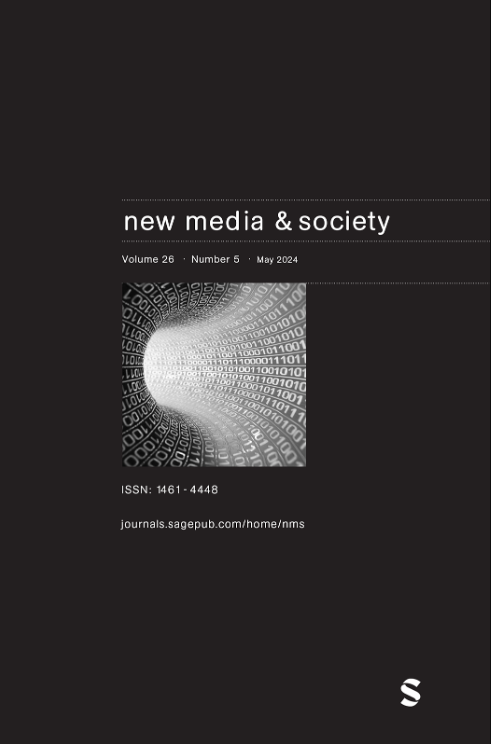Cinch, filter, erase: Virtual bodies and the editable self
IF 4.5
1区 文学
Q1 COMMUNICATION
引用次数: 0
Abstract
Selfie-editing technologies (including in-phone editing tools, filters, and apps like Facetune) provide the ability digitally edit and “enhance” facial and body features in photos. This article extends a theorization of “the virtual” developing from earlier approaches in feminist sociology and digital media studies, to consider the implications of selfie-editing capacities for how young people navigate selfhood in contemporary visual cultures. We draw on qualitative data, including in-depth semi-structured interviews and participatory selfie-editing group workshops which used an innovative “smartphone live capture” method, where participants screen recorded on their smartphones and narrated how they edit selfies in real time to understand how bodies materialize through the everyday technologies of visual culture. We theorize that editing apps facilitate a “virtual gaze” that can create new ways of sensing embodiment, producing both intensified self-scrutiny and a seemingly increasingly plastic virtual and physical body, available for remaking according to intensifying demands for visual perfection.收缩,过滤,删除:虚拟身体和可编辑的自我
自拍编辑技术(包括手机内编辑工具、滤镜和Facetune等应用程序)提供了数字编辑和“增强”照片中面部和身体特征的能力。本文从女性主义社会学和数字媒体研究的早期方法中扩展了“虚拟”的理论,以考虑自拍编辑能力对当代视觉文化中年轻人如何驾驭自我的影响。我们利用定性数据,包括深度半结构化访谈和参与式自拍编辑小组研讨会,该研讨会采用了一种创新的“智能手机实时捕捉”方法,参与者在智能手机上播放录制的视频,并讲述他们如何实时编辑自拍,以了解身体如何通过视觉文化的日常技术实现具体化。我们的理论是,编辑应用程序促进了一种“虚拟凝视”,这种“虚拟凝视”可以创造出新的感知化身的方式,既产生了强化的自我审视,又产生了一个看似越来越可塑的虚拟和物理身体,可以根据对视觉完美的日益强烈的要求进行重塑。
本文章由计算机程序翻译,如有差异,请以英文原文为准。
求助全文
约1分钟内获得全文
求助全文
来源期刊

New Media & Society
COMMUNICATION-
CiteScore
12.70
自引率
8.00%
发文量
274
期刊介绍:
New Media & Society engages in critical discussions of the key issues arising from the scale and speed of new media development, drawing on a wide range of disciplinary perspectives and on both theoretical and empirical research. The journal includes contributions on: -the individual and the social, the cultural and the political dimensions of new media -the global and local dimensions of the relationship between media and social change -contemporary as well as historical developments -the implications and impacts of, as well as the determinants and obstacles to, media change the relationship between theory, policy and practice.
 求助内容:
求助内容: 应助结果提醒方式:
应助结果提醒方式:


